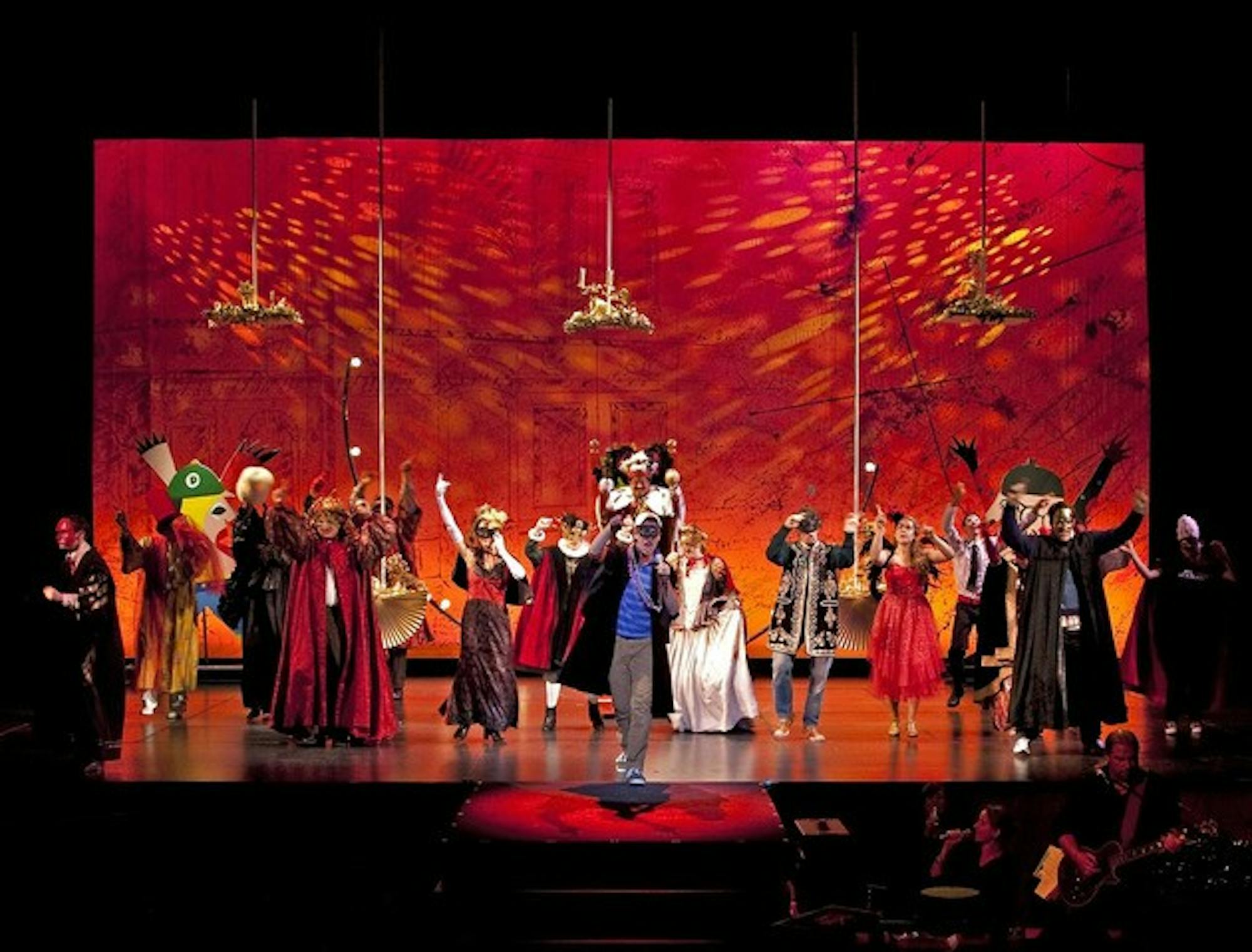In large part, the show owes its success to several innovative choices made by director and theater department chair Peter Hackett, who is responsible for shifting the play's location from Verona to Hanover. Though toying with notions of time and place in Shakespeare's plays is not unheard of (see Baz Luhrmann's 1996 "Romeo + Juliet"), the maneuver is always risky, particularly when a director chooses to move the play to the present day. Modern-day adaptations run the risk of coming off as trite or cheesy (again, see Luhrmann's "Romeo + Juliet"), but Hackett exercises admirable restraint, coupled with a keen sense of humor, in his modern reimagining of Shakespeare's tale.
Thus, comic modern elements abound throughout the show, lightening the mood; and yet the setting never overpowers the play's essential storyline. In fact, the present-day setting ties in almost seamlessly with the major events of the play.
The play is premised on a love triangle between two best friends, Valentine and Proteus (played by Sterling Beard '12 and Maxwell Hunter '13, respectively), and Silvia (Lillian Wilson '12), the beautiful daughter of the Duke of Milan (Chris Holland '11). Valentine ventures to Milan from Verona in order to broaden his horizons, hoping to become wiser to the ways of the world through travel. At the behest of his father, Proteus follows suit and is begrudgingly forced to leave his beloved Julia (Talene Monahon '13) behind in Verona.
When Proteus arrives in Milan, however, he soon forgets Julia, instead falling head over heels for Sylvia, whom Valenine has taken on as a love interest. Crafty shenanigans ensue, with Proteus behaving altogether terribly, getting Valentine banished by the Duke and parading himself shamelessly before an uninterested Silvia. Matters are not helped when Julia heartbroken from Proteus' failure to write to her decides to disguise herself as a man, travel to Milan and enter Proteus's service, thus witnessing all of his follies.
Transplanted to the Dartmouth campus, these events prove strikingly relevant and believable not to mention humorous. All too familiar, for example, is Proteus' caricatured WASP-y golf fiend of a father, who wants his son to study abroad like Valentine in order to accrue social capital. Equally humorous, Proteus and Julia woo one another with elaborate, melodramatic text messages. Likewise, Julia decides to travel to Milan when Proteus ignores her calls.
Of course, not every Shakespearean plot point can fit perfectly in this modern retelling. Uncomfortable moments are occasionally glossed over, and sometimes key details go entirely ignored. Julia's decision, for example, to disguise herself as a man in order to prevent lecherous advances during her travels makes little sense in a modern context.
An inserted musical number Tracy Chapman's "The Promise," sung with poise by Monahon serves to relieve some of this tension, however. "Though I've traveled far, I always hold a place for you in my heart," Monahon belts, adding new layers of depth to Julia's character that help to explain her unfailing devotion to Proteus a lingering uncertainty that Shakespeare himself failed to address.
Still, audiences are left wondering about Julia's need for cross-dressing. Lucetta, a college employee who has befriended the precocious Julia, cuts the young girl's hair during the song, an action that creates a striking visual effect and hints at an intriguing social commentary. But to what end? Ultimately, the audience is left uncertain.
However, such is the nature of Shakespeare's play, which is filled with uncertainties and inconsistencies intended to leave its audience uncomfortable at the very least. Like Claudio in "Much Ado about Nothing" and the Duke in "Measure for Measure," Proteus is granted a happy ending despite his often questionable behavior over the course of the show, including what borders on attempted rape. Our supposed hero is all too easily forgiven by Julia, by Valentine and by society.
The disjunctures between the play's text and the ethos of its modern setting, however, actually contribute to, rather than detract from, the overall effectiveness of the play. Certain plot points, such as Julia's cross-dressing and Valentine's banishment from Milan, seem anachronistic and ill-suited to the modern context, enhancing its atmosphere of discomfort and doubt.
Although "discomfort and doubt" may sound dark and dramatic, the play itself is not. One needs only to take a look at the show's set the court of Milan, for example, is a masterfully whimsical explosion of color and pomp to get a sense of the overall lightheartedness of the production.
Musical additions throughout the play another ingenious innovation by Hackett keep the pace brisk and add much-appreciated variety to the viewing experience. Crowd-pleasers such as "What I Like about You" and "Have You Ever Loved a Woman" elicited laughter and even cries of delight from audience members on opening night. Especially memorable was "Have You Ever Loved a Woman," an all-out musical number for which Beard and Neil Basu '11, playing Valentine's servant, donned black shades and assumed rock star personas.
Beard and Basu fully embraced and committed to their roles, not only during this song but throughout the show, their friendly rapport a source of much amusement and comic relief. Monohan and Hunter, as lovers Julia and Proteus, also gave standout comedic and musical performances. Aside from the leads, the large cast of supporting characters especially, Holland and Olivia Baptista '12 delivered strong and memorable performances.
"Two Gentlemen of Verona" opened Friday night in the Moore Theater. It returns to the stage Thursday, Nov. 18 and runs through Saturday, Nov. 20, with performances at 8 p.m., including a post-performance discussion following the Friday performance. There will also be a matinee performance at 2 p.m. on Sunday, Nov. 21.




